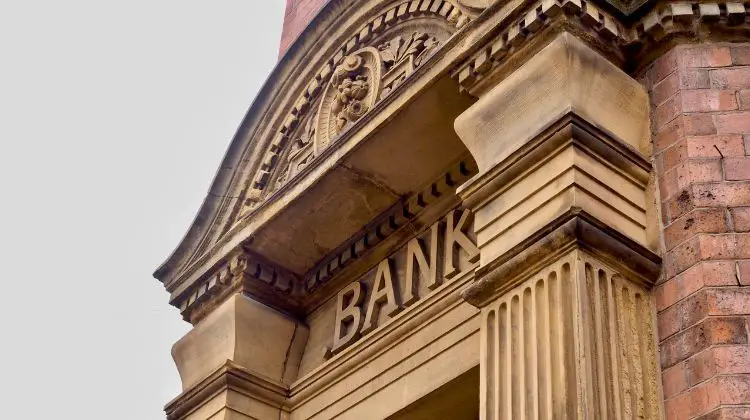
Banking can feel overwhelming, with hidden fees and confusing terms. You need a financial institution that understands military life, including deployments and PCS moves. This means finding the best military friendly banks and credit unions offering direct deposit.
Finding military friendly banks involves more than slogans. It’s about partners committed to your needs, whether you’re starting service or transitioning to civilian life. What exactly does a “military-friendly” bank mean?
Table of Contents:
- Understanding Military Friendly Banks
- Key Features of Military Friendly Banks
- Finding the Right Fit: Choosing Your Military Friendly Bank
- Veteran Insights and Experiences
- Conclusion
Understanding Military Friendly Banks
Military friendly banks tailor services for the armed forces and veteran community. Some are dedicated military banks or federal credit unions. Even traditional financial institutions offer “military-friendly” packages.
What Makes a Bank Truly Military Friendly?
True military-friendly banking involves more than waived ATM fees. Look for early direct deposit of military pay. Having your paycheck early helps with budgeting.
Competitive interest rates on personal loans, credit cards, and deposit accounts give you more for your money. Consider lenders like Navy Federal Credit Union and USAA for options.
Consider banks offering SCRA (Servicemembers Civil Relief Act) benefits. This protects your finances during deployments with provisions like interest rate caps on pre-service debts.
Look for flexibility for PCSing or deployment. Accounts should be easily managed wherever you are stationed thanks to online and mobile banking options. Little or no monthly maintenance fees are also important. Banks also operate under standard economic principles and are subject to economic downturns.
Institutions like Chase actively market towards veterans. Be sure to examine their fees and services.
Key Features of Military Friendly Banks
What should you look for in banks for veterans and their families? Let’s delve into the key features.
Financial Benefits and Perks
Look for competitive interest rates, especially with low national average savings account rates, as reported by the FDIC. SCRA compliance keeps interest rates at 6% during your military career.
Many banks and credit unions offer special incentives like early direct deposit for military personnel.
Deployment and PCS Support
Managing finances while deployed is a challenge. A bank with special support for service members makes this smoother.
Look for options like early access to military pay and low or no monthly fees. This allows you to concentrate on urgent matters when deployed or between duty stations.
Accessible Banking
PCS moves mean frequent changes. A military friendly bank understands this. Easy online and mobile banking and ATM fee reimbursements, stateside or overseas, help.
Find banks and credit unions servicing locations within the USA. Focus on finding the best savings accounts to avoid high-risk accounts. Florida Tech is one example of an institution working with veterans in Florida.
Finding the Right Fit: Choosing Your Military Friendly Bank
Choosing a military friendly bank is an involved process. Multiple factors impact each financial decision. Service members must research savings and checking accounts.
Carefully consider resources like financial counseling before opening online bank accounts. This ensures there is no confusion about accounts, routing, or other financial products. Credit cards, and savings and checking accounts are also valuable products for financial wellbeing.
Specific Needs
Are you a young service member building credit? Or are you transitioning out, needing a VA mortgage lender?
A new recruit needs different support than a veteran requiring wealth management. The Penny Hoarder has some recommendations for choosing an institution.
Your situation may change from month to month requiring you to change your strategy each month so make sure to fully understand the process before you embark.
Traditional vs. Military Banks
Traditional banks offer robust nationwide networks. These are ideal for frequent moves.
Specialized military banks like USAA offer deeper understanding and programs. These cater to service member experiences. Many financial institutions focus on helping customers choose the best solution.
Credit Unions: A Unique Option
Credit unions operate differently, often offering personal customer service. Many, including Navy Federal and PenFed Credit Union, have incentives for military personnel.
Consider credit unions for services like credit cards, personal loans, or wealth management. Some offer savings accounts specifically tailored to the military members of armed forces.
Veteran Insights and Experiences
Talking with fellow service members and veterans provides firsthand feedback. Some veterans struggle finding supportive institutions. They find success with institutions making military-friendly part of their identity.
A former Air Force mechanic found small-town credit unions didn’t grasp military nuances. He sought counseling through the Veterans Benefits Banking Program (VBBP). He discovered the best fit was a smaller credit union valuing his service.
Conclusion
Determining what “military-friendly” means is important. Identifying resources aligned with a service member’s life stage and requirements, like educational programs, is crucial. Business banking and checking are important features, too.
This is vital upon returning to civilian life. Recognize opportunities offered by some institutions. Benefits, tools, and wealth planning support are all important factors.
Choosing military friendly banks goes beyond free checking accounts. It’s about aligning with an institution committed to your needs. Resolving financial issues lets you focus on your military career.